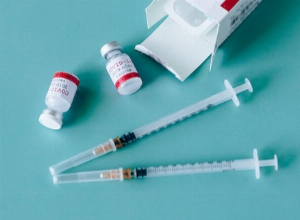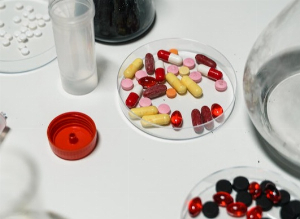Vaccination of patients affected by TTP (Thrombotic Thrombocytopenic Purpura)
Published 27 Nov 2022 • By Nada Doukkali
TTP (Thrombotic Thrombocytopenic Purpura) is a rare haematological condition characterised, among other things, by a reduced number of platelets in the blood.
Living with TTP requires a close monitoring of your health and following certain recommendations, as well as taking medications. But what about vaccines?
Read our article to find out more!

How does vaccination work?
Vaccines are used to prepare the immune system's defenses against external threats, known as pathogens. They allow the immune system to train itself in order to be able to recognize these pathogens by introducing it to a small part of them, which is actually an inactivated or a very weakened version of them, that is not dangerous for the body.
The body will then produce so-called "memory cells", which will be able to recognize pathogens and act more quickly if an infection occurs.
There are two types of vaccines:
- The most common ones are preventive vaccines, which allow the body to better fight infectious diseases, caused by external pathogens, by using the mechanisms described above.
- There are also therapeutic vaccines, which help to "unlock" the immune system, hampered by certain diseases, such as cancer. These are mainly still in development.
Vaccination is therefore a way of fighting infectious diseases and their transmission. It is estimated, for example, that vaccination has led to a 99% reduction in polio cases since 1988 and a 73% reduction in measles cases between 2000 and 2018.
Vaccination of patients affected by TTP (Thrombotic Thrombocytopenic Purpura)
Thrombotic Thrombocytopenic Purpura (TTP) is a rare blood condition. It is characterized by an abnormality of blood coagulation and the presence of episodes called relapses, or recurrences.
The administration of vaccines can, in some cases, cause a relapse in these diseases. It is therefore important to ensure that they are well managed.
In patients with TTP, the disease is caused by a defect in a protein called ADAMTS13. It is therefore essential to check that its level in the patient's blood reaches a "protective threshold" of activity of more than 20%, before considering vaccination.
In congenital TTP, where the ADAMTS13 defect is due to a genetic abnormality, this problem is alleviated by administering vaccines immediately after a plasma transfusion, to avoid a relapse.
Finally, one of the treatments for TTP is the removal of the spleen, which is one of the organs responsible for the production of antibodies. Patients who have their spleen removed are therefore at high risk of being immunocompromised, i.e. having a weaker than average immune system. In this sense, annual flu vaccination is recommended.
Moreover, due to their immunosuppression, these patients are also very sensitive to a particular type of bacteria, called pneumococci. It is therefore important for them to be up to date on the pneumococcal vaccination plan. Some recommendations even consider revaccination up to once every 3 years in some cases.
In any case, the management of any vaccination project must be secured by the attending physician and/or the specialist in charge of the patient.
Can the disease be provoked by a vaccine?
Some vaccines can induce acquired TTP as a result of the production of autoimmune antibodies that provoke a low platelet count. Rare cases of thrombocytopenia associated with the COVID vaccine have also been reported. This syndrome, called VITT (Vaccine-Induced Immune Thrombotic Thrombocytopenia), which also causes thrombocytopenia, is not to be confused with TTP.
What about COVID vaccines?
Patients with TTP are not considered at risk of developing a severe form of COVID-19, according to current information. However, COVID vaccination is still recommended, especially for people with co-morbidities that put them at a higher risk of contracting the disease.
However, the precautions outlined above should be observed. Furthermore, for patients with a history of thrombosis it would be preferable to favor mRNA vaccines (Pfizer-NTech, Moderna...), if possible.
Give it a "like" and share your thoughts and questions with the community in the comments below!
Take care!
Sources :
Le PTI en 100 questions ?, MaRIH
Recommandations du CNR-MAT : vaccination contre la COVID-19 des patients attients de PTT et SHU Atypique, MaRIH
Protocole national de diagnostic et de soins - Purpura Thrombotique Thrombocytopénique, HAS
COVID 19 and Rare Diseases, Orphanews
Les maladies et leurs vaccins, Vaccination Info Service
Vaccins et vaccination, INSERM
COVID and TTP - Updates, TTPNetwork
Vaccination anti-COVID19, CNR-MAT
COVID19 et effet VITT : Vaccination et risque de thrombocytopénie, Santé log

 Facebook
Facebook Twitter
Twitter


